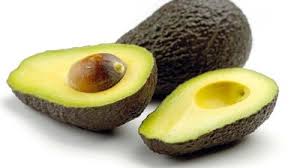Cloves Fight Sexual WeaknessesIndulgence in sexual activities is
the prime source of reproduction, creation of a new being – human or animal.
Without it, the creation ceases. Cloves, the aromatic spice derived from the
flower buds of the clove tree, have been a staple in traditional medicine for
centuries. Known for their warm, sweet flavor and potent aroma, cloves are not
just a culinary delight but also a powerhouse of health benefits. For men, in
particular, cloves offer a range of unique health advantages that can improve
quality of life. From addressing sexual health issues like erectile dysfunction
and premature ejaculation to boosting fertility, fighting diabetes and
enhancing overall well-being, cloves stand out as a natural remedy that
everyone should consider incorporating into his daily routine. This article
explores the benefits of cloves, providing insights into how this simple spice
can be a game-changer for total health.
Antioxidant Powerhouse:
Protecting Cells and Slowing Aging
Cloves are packed with antioxidants,
which are compounds that play a crucial role in protecting the body against
oxidative stress. Oxidative stress occurs when there is an imbalance between
free radicals and antioxidants in the body, leading to cell and tissue damage.
Free radicals are highly reactive molecules that can cause significant harm to
cells, proteins, and DNA, contributing to the aging process and the development
of chronic diseases such as heart disease, diabetes, and cancer.
The primary antioxidant in
cloves is eugenol, a compound that has been extensively studied for its health
benefits. Eugenol not only neutralizes free radicals but also enhances the
body's antioxidant defense system, making it more efficient at combating
oxidative stress. For men, the benefits of eugenol extend beyond general
health. By protecting cells from damage, eugenol helps maintain the integrity
of tissues and organs, thereby slowing down the aging process and reducing the
risk of age-related diseases. For instance, regular consumption of cloves may
help prevent conditions like cardiovascular disease, which is a leading cause
of mortality among men.
Moreover, the anti-inflammatory
properties of eugenol contribute to its ability to reduce the risk of chronic
inflammation, a key factor in the development of many diseases. Chronic
inflammation can damage tissues over time, leading to conditions like
arthritis, Alzheimer's disease, and even certain cancers. By including cloves
in their diet, men can take a proactive approach to protecting their health,
ensuring that their bodies remain resilient against the harmful effects of
aging and chronic disease.
Tackling Premature Ejaculation
Naturally
Premature ejaculation (PE) is a
common sexual dysfunction that affects many men worldwide, leading to distress
and dissatisfaction in relationships. PE is characterized by a lack of control
over ejaculation, resulting in it occurring shortly after sexual activity
begins, often within a minute. This condition can lead to frustration, anxiety,
and reduced self-esteem, significantly impacting a man's sexual health and
relationship quality.
Cloves offer a natural and
effective solution for men struggling with PE. The bioactive compounds in
cloves, particularly flavonoids and tannins, play a vital role in regulating
neurotransmitters that control the ejaculation process. By modulating the
release of these neurotransmitters, cloves help delay ejaculation, allowing men
to maintain better control during intercourse.
For example, a traditional
remedy in many cultures involves the topical application of clove oil mixed
with a carrier oil on the genital area to reduce sensitivity and prolong sexual
performance. This practice has been supported by studies showing that clove oil
has mild anesthetic properties, which can help desensitize the nerves
responsible for premature ejaculation. Additionally, consuming cloves regularly
as part of the diet can provide long-term benefits, improving overall sexual
stamina and reducing the occurrence of PE over time.
Fighting Erectile Dysfunction:
Enhancing Blood Flow and Performance
Erectile dysfunction (ED) is a
widespread issue that affects millions of men, particularly as they age. ED is
the inability to achieve or maintain an erection sufficient for satisfactory
sexual performance. This condition can stem from various causes, including poor
blood circulation, stress, hormonal imbalances, and chronic health conditions
like diabetes and hypertension.
Cloves can be a powerful
natural remedy for combating ED, thanks to their ability to enhance blood flow.
The active compounds in cloves, especially eugenol, are known to improve
circulation by relaxing blood vessels and promoting the flow of blood to
different parts of the body, including the genital area. Adequate blood flow is
essential for achieving and maintaining an erection, as it ensures that the
penile tissues are well-nourished and oxygenated.
For instance, a study published
in the Journal of Natural Medicines highlighted the vasodilatory effects of
eugenol, which can help alleviate conditions like ED. Men who struggle with ED
due to poor circulation can benefit from including cloves in their diet, as
this can lead to improved erectile function and sexual performance.
Furthermore, cloves' ability to reduce inflammation and combat oxidative stress
also contributes to better vascular health, further supporting erectile
function.
Incorporating cloves into daily
meals or consuming them as a supplement can provide men with a natural,
side-effect-free way to address ED. This approach not only enhances sexual
health but also boosts overall confidence and quality of life.
Improving Sperm Quality:
Boosting Fertility Naturally
Fertility issues are a growing
concern among men, with low sperm count and poor sperm quality being common
factors that contribute to difficulties in conceiving. Various factors,
including lifestyle choices, environmental toxins, and health conditions, can
negatively impact sperm production and quality, leading to challenges in
fatherhood.
Cloves, rich in essential
nutrients like vitamins C and E, zinc, selenium, and antioxidants, can play a
significant role in improving sperm health. These nutrients are crucial for
maintaining healthy sperm production and function. For example, vitamin C is
known for its ability to protect sperm from oxidative damage, while zinc is
essential for testosterone production, a hormone that plays a critical role in
sperm development.
Studies have shown that the regular
consumption of cloves can lead to a significant increase in sperm count and
motility. Motility refers to the sperm's ability to move efficiently, which is
vital for fertilization. In addition, the antioxidants in cloves help protect
sperm from oxidative stress, which can cause DNA damage and reduce fertility.
By enhancing both the quantity and quality of sperm, cloves can be a natural
and effective solution for men facing fertility challenges.
For example, men who have been
trying to conceive without success may benefit from incorporating cloves into
their diet, either by adding them to meals or consuming them as a supplement.
Over time, this can lead to improved sperm parameters, increasing the
likelihood of conception and contributing to overall reproductive health.
Regulating Blood Sugar: A Boon
for Diabetic Men
Diabetes is a chronic condition
that affects millions of men worldwide, leading to complications such as heart
disease, nerve damage, kidney failure, and vision problems. Managing blood sugar
levels is crucial for preventing these complications and maintaining overall
health. Cloves can be an excellent natural aid for blood sugar regulation,
thanks to their active compound eugenol, which has been shown to improve
insulin sensitivity and glucose metabolism.
For diabetic men, cloves offer
a natural way to help stabilize blood sugar levels and prevent dangerous spikes
and dips. Eugenol works by enhancing the activity of insulin, the hormone
responsible for regulating blood sugar levels. By improving insulin
sensitivity, cloves help the body use glucose more effectively, reducing the
risk of hyperglycemia (high blood sugar) and associated complications.
Moreover, cloves have been
found to slow down the absorption of carbohydrates in the digestive tract,
which helps prevent sudden increases in blood sugar levels after meals. This
effect is particularly beneficial for men with type 2 diabetes, who often
struggle with postprandial (after eating) blood sugar spikes.
Incorporating cloves into a
diabetic-friendly diet can be as simple as adding them to tea, curries, or
stews. Men can also take clove supplements under the guidance of a healthcare
provider. Regular consumption of cloves, combined with a balanced diet and
exercise, can help men manage their diabetes more effectively and reduce their
reliance on medication.
Anti-Cancer Properties:
Reducing the Risk of Cancer
Cancer is one of the leading
causes of death worldwide, and for men, certain types of cancer, such as
prostate cancer, pose a significant risk. The search for natural
cancer-preventative measures has led to the discovery of the powerful
anti-cancer properties of cloves. The high concentration of antioxidants,
particularly eugenol, gives cloves their cancer-fighting potential.
Eugenol has been shown to
inhibit the growth of cancer cells and promote apoptosis, the process of
programmed cell death, in various types of cancer, including prostate, breast,
and lung cancer. For men, the implications of these findings are profound, as
they suggest that regular consumption of cloves could help reduce the risk of
developing cancer, particularly prostate cancer, which is one of the most
common cancers among men.
In addition to eugenol, cloves
contain other bioactive compounds such as flavonoids and phenolic acids, which
also contribute to their anti-cancer properties. These compounds work together
to combat oxidative stress, reduce inflammation, and inhibit the proliferation
of cancer cells. For example, research published in the Journal of Medicinal
Food highlighted that cloves could effectively inhibit the growth of prostate
cancer cells in laboratory settings, pointing to their potential as a natural
preventive strategy.
Men concerned about their
cancer risk can incorporate cloves into their daily routine as a dietary
supplement or as a spice in cooking. While cloves alone cannot guarantee cancer
prevention, they can be part of a holistic approach to reducing cancer risk,
alongside a healthy diet, regular exercise, and avoiding known carcinogens.
Dental Health: A Natural Remedy
for Toothache
Dental health is often
overlooked, but it plays a crucial role in overall well-being. Toothaches can
be excruciating and may arise from various issues such as cavities, gum
disease, or tooth infections. While modern dentistry offers many solutions,
cloves provide a natural, effective remedy for managing dental pain and
promoting oral health.
Cloves contain eugenol, a
compound with potent analgesic and antiseptic properties that can provide immediate
relief from toothache. Eugenol works by numbing the affected area and
reducing inflammation, making it an effective short-term treatment for dental
pain. In fact, clove oil has been used in traditional dentistry for decades as
a natural anesthetic during dental procedures.
For instance, if a man
experiences sudden tooth pain, placing a whole clove on the affected tooth can
provide temporary relief until professional dental care is available.
Additionally, cloves' antibacterial properties help combat the bacteria
responsible for tooth decay and gum disease, making them a valuable tool for
maintaining oral hygiene.
Regularly using clove oil or
clove-based mouthwash can also help prevent common dental issues, such as
cavities and bad breath. By incorporating cloves into their oral care routine,
men can enjoy better dental health and avoid the discomfort and complications
associated with tooth and gum problems.
Digestive Health: Promoting
Better Digestion
Good digestion is the
foundation of overall health, as it ensures that the body efficiently absorbs
nutrients from food while eliminating waste products. Digestive issues such as
bloating, indigestion, and gas are common problems that can lead to discomfort
and nutrient deficiencies. Cloves can significantly improve digestive health by
stimulating the secretion of digestive enzymes and enhancing the overall
digestive process.
The active compounds in cloves,
including eugenol, have been shown to promote the production of digestive
enzymes, which are essential for breaking down food in the stomach and
intestines. This process not only aids in digestion but also helps prevent
common digestive issues such as bloating, constipation, and indigestion. For
men who frequently experience digestive discomfort, incorporating cloves into
their diet can lead to noticeable improvements in how their digestive system
functions.
For example, cloves can be
added to herbal teas or used as a spice in cooking to support digestion.
Traditional remedies often recommend drinking clove tea after meals to aid
digestion and reduce the likelihood of gas and bloating. By improving
digestion, cloves also enhance nutrient absorption, which is vital for
maintaining energy levels and overall health.
Additionally, cloves have carminative
properties, meaning they help relieve gas and prevent the formation of gas in
the digestive tract. This makes them particularly beneficial for men who
experience frequent flatulence or bloating, providing a natural and effective
solution for digestive discomfort.
Combating Bad Breath: A Natural
Solution for Freshness
Bad breath, or halitosis, can
be a significant source of embarrassment and social anxiety, affecting a
person's confidence in both personal and professional interactions. Bad breath
is often caused by bacteria in the mouth that produce foul-smelling sulfur
compounds. While many commercial products claim to combat bad breath, cloves
offer a natural and effective alternative without the harsh chemicals found in
some mouthwashes and breath fresheners.
The aromatic oils in cloves,
particularly eugenol, have powerful antimicrobial properties that help
eliminate the bacteria responsible for bad breath. Chewing on a few cloves
after a meal can help neutralize odors and leave the breath smelling fresh.
This simple practice has been used for centuries in various cultures as a
natural breath freshener.
For example, in Indian and
Middle Eastern cultures, it is common to chew cloves or include them in
post-meal refreshments to promote fresh breath and aid digestion. Men who
struggle with chronic bad breath can benefit from incorporating this practice
into their daily routine. Moreover, clove-based mouthwashes or tooth powders
can be used regularly to maintain oral hygiene and keep bad breath at bay.
How to Incorporate Cloves into
Your Daily Routine
To reap the numerous health benefits
of cloves, it's important to consume them correctly. A recommended dosage is
two to three cloves daily. They can be taken in the morning on an empty stomach
with warm water, or at night after dinner with milk or water. Chewing the
cloves thoroughly before swallowing ensures that their active compounds are
fully absorbed by the body.
Moderation is Key
While cloves offer numerous health
benefits, it’s important to consume them in moderation. Excessive consumption
of cloves can lead to side effects such as stomach irritation, respiratory
issues, or an allergic reaction. It is advisable to stick to the recommended
dosage and consult with a healthcare provider if you have any pre-existing
conditions or concerns.
Power of Cloves for Enhanced Health
Cloves are a versatile and potent
natural remedy that offers a wide range of health benefits, particularly for
men. From improving sexual health and fertility to boosting immunity and
digestive health, cloves can play a crucial role in enhancing overall
well-being. By incorporating cloves into your daily routine in moderation, you
can unlock their full potential and enjoy a healthier, more vibrant life.
Remember, like any remedy, cloves are most effective when used as part of a
balanced diet and healthy lifestyle.

























